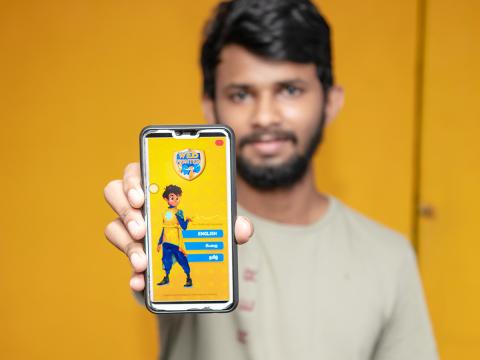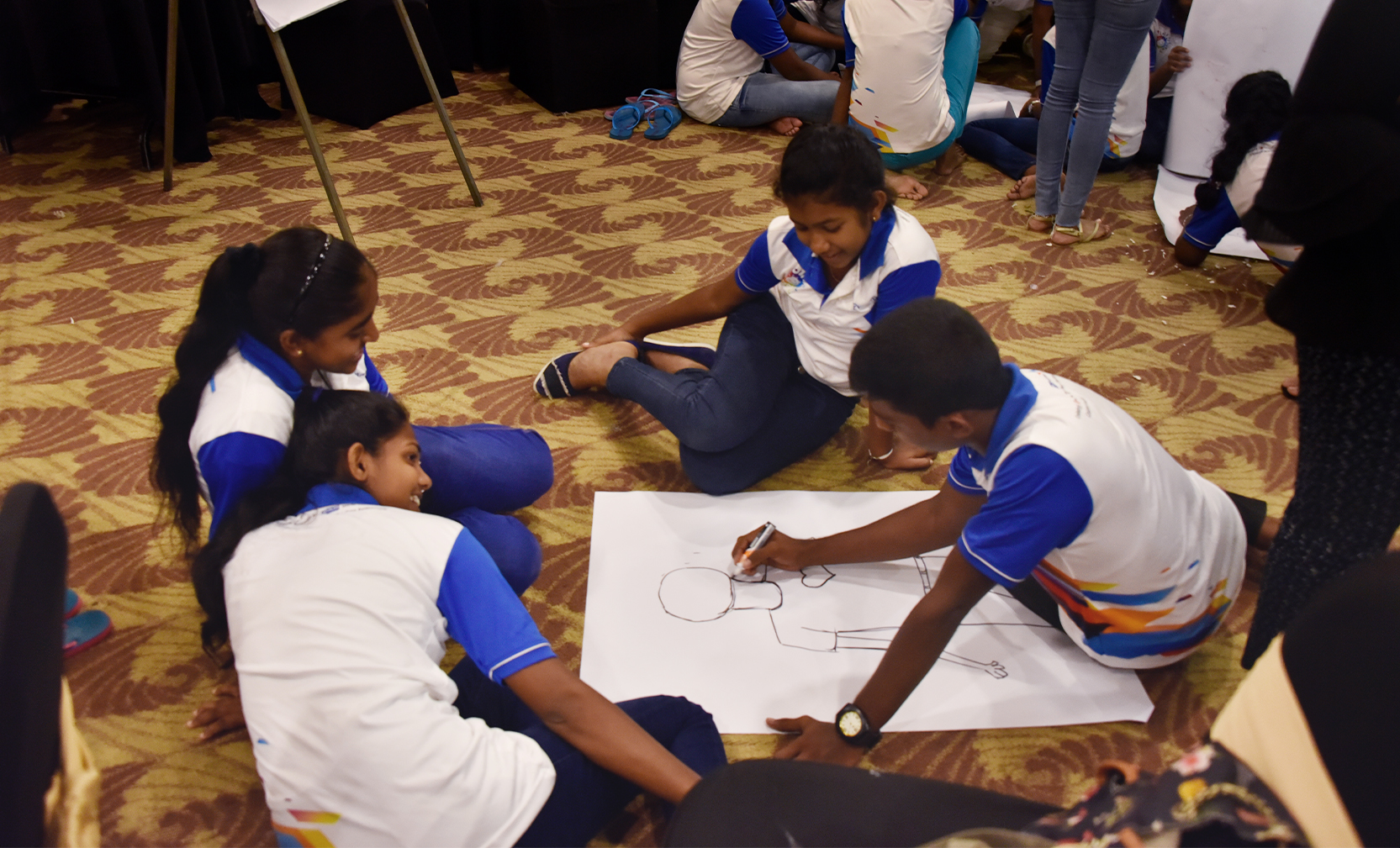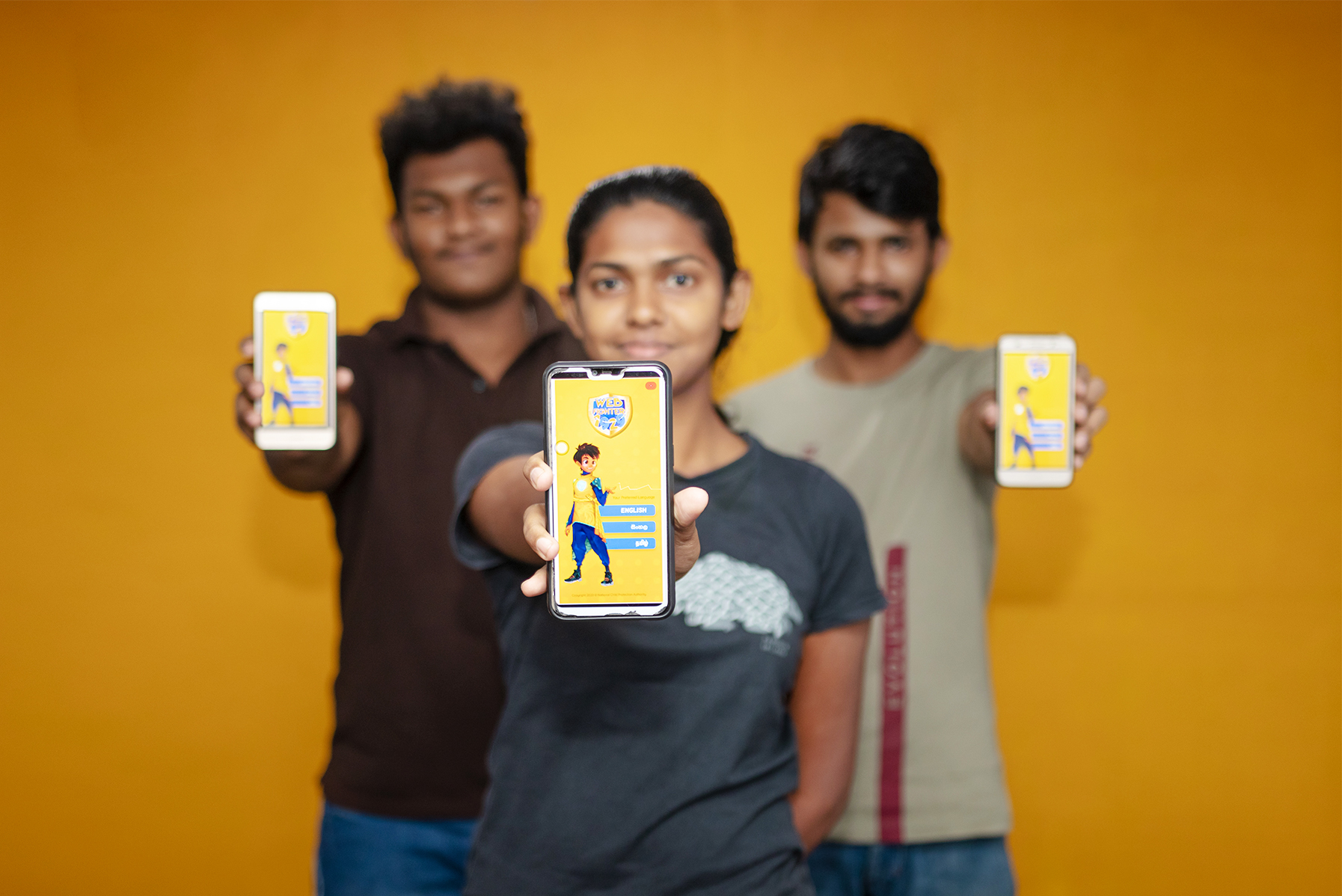From the children. For the children

Senuri (17) Prabath (18) and Isuru (16) were part of the 18 children from Wattala who participated on a consultation workshop by World Vision to understand the issues that children faced in their community and the solutions they would suggest.
Among the variety of issues, they prioritised three - sexual harassment that they faced while walking on the roads, drug abuse and domestic violence and other forms of abuse children experienced at home. The children were divided into three groups and were asked to come up with their solutions for these issues. "To report on domestic violence and abuse that children experienced, we suggested an app," says Prabath, "Almost everyone has a smart phone these days and we thought through an app people would be able to report incidents faster."
"We also had plans to map and identify vulnerable children so that the Child Protection officers would take be able to pay close attention to them," he explains "of course this information will be confidential and be only available to those responsible for child protection in the area."
Their plan was detailed and solid. They wanted the reported incident to be delivered to the nearest police station immediately and to have geo tagging on where the incident was happening.
Meanwhile the then Child Protection and Participation Sector Advisor of World Vision Lanka - Kanishka Rathnayake took up their solution and presented to the Consortium for Ending Online Violence Against Children as a suggestion by the children. The Consortium made up of World Vision Lanka, Save the Children in Sri Lanka, LEADS Sri Lanka, and Sarvodaya-Fusion took it up with the funding support of the Global Partnership to End Violence Against Children (GPEVAC) and called for app developers who could work on it.

The Consortium ensured the children were consulted throughout the development process.
"Right through the process we were able to share our suggestions, on the colours, the mascot and to have simplified language that is easy for children as well," Senuri shares.
"We also didn’t want the app to sit in the phones idling and forgotten," Isuru says, "So we requested that there would be a chat option to share knowledge and frequent updates on child protection, child rights and news related to children."
The app the children planned for their area became a national app and was launched together with the National Child Protection Authority. The app allows the user to communicate in any of the three languages (English, Sinhalese and Tamil) used in Sri Lanka, send pictures or audio and video files of evidence. The reporting incident goes directly to the NCPA where a Child Protection Officer is assigned to each complaint. Those who report the incident will be able to track the progress of the complaint as well.
"The app is great and we all have it in our phones," says Prabath, "But we will know what else needs to be improved once it begins to be used. For the moment, we are very happy with the outcome and it has become a national app."
"The app became a reality actually because of the pandemic," says Isuru "After we worked on the three solutions, we had the opportunity to present them to the duty bearers and respond to their questions. Then we had to start working on one solution at a time. After several rounds of discussions we chose ‘Fun Wheel’ as our first project. We felt our first project should be a fun and an engaging one. But because of the pandemic we had to put it on hold as the meeting and planning had to be limited."
"Fun Wheel solution was developed with the aim of helping prevent drug abuse among children and youth. A lot of children get into this addiction because they don’t have a better way to spend their idle time," Isuru says, "Through Fun Wheel (a three wheeler) we wanted to reach them and provide them with games and entertainment that supported their development and help keep them from addictions. The wheel would stay in different locations every week and will be managed by a trained youth."
The other solution was to help children report and combat encountering perverts on the roads. "We suggested that we build confidence of children to report about such individuals; we give them clear guidance on what to do if they encounter a person and identify locations where these incidents regularly happened and help children adopt safety mechanisms such as travelling in groups or with an adult," explains Senuri.
The group also thought of developing flash cards that children could keep with them at all times to refer for the steps to be taken and to flash these cards to such people to let them know the law is active against them.
These child heroes continue to work with other children in their community until they see their area as a safe place for children.
